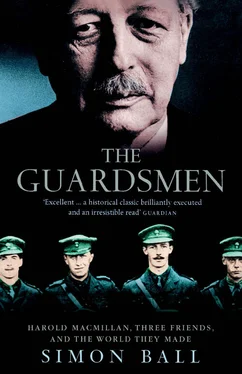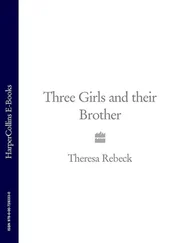As much as a collective biography this book is a comparative biography. It is concerned with those moments when its subjects interacted with each other but also with those situations where their actions might be contrasted. From early childhood Macmillan, Lyttelton, Cranborne and Crookshank were brought up with the notion that they were in competition with their contemporaries for the glittering prizes, the marks of honour accorded to men in public life. Although they were each under pressure to surpass the achievements of earlier generations of their own families, the main competition had to be against their own cohort. To use a sporting simile, an athlete can only race on the same track with those who reach their peak at the same age as himself. These four men came to the starting-line at the same time, and thus their performances can legitimately be measured against one another. The theme of this book is a race, a competition, willingly entered into, for power and glory. It seeks to explain why some men fell by the wayside while others prospered. ‘It’s not a flat race, it’s a steeplechase,’ as Winston Churchill once told Harold Macmillan.
Harold Macmillan, Bobbety Cranborne, Oliver Lyttelton and Harry Crookshank were members of a remarkable group. The four were born within a year of one another, Bobbety Cranborne, Oliver Lyttelton and Harry Crookshank in 1893, Harold Macmillan, the youngest of the quartet, in February 1894. As Lyttelton himself wrote, ‘Harold Macmillan went to Eton as a Scholar at the beginning of the school year of 1906. Strangely amongst his exact contemporaries at Eton were three boys, Cranborne, Crookshank and Lyttelton, all – like he – destined to be officers in the Grenadier Guards, all destined to survive…and all to be members of Mr Churchill’s governments in war and peace.’ 1
In the carefully cadenced world of Edwardian society, the four had started out not as a quartet but as two distinct pairs. Cranborne and Lyttelton were patricians, Macmillan and Crookshank ‘new men’. Eton was the clasp, a link sought quite consciously by the Macmillan and Crookshank families, that bound patrician and plebeian together. In the event this link was annealed by the Grenadier Guards.
The Lytteltons and the Cecils were aristocratic families who enjoyed a warm friendship. Not only was Oliver Lyttelton’s father, Alfred, close to Bobbety’s father, Jim Salisbury, but Oliver’s mother, Didi Lyttelton, and Bobbety’s mother, Alice Salisbury, were firm friends. 2 In 1875 Jim Salisbury’s cousin, the future prime minister Arthur Balfour, fancied himself in love with Alfred’s sister, May. AJB was disconsolate at her early death from diphtheria, placing an emerald ring in her coffin. Naturally his friends rallied round. They rallied round once more in 1886 to console Alfred in his grief after the death of his wife, Laura, in childbirth just eleven months after their marriage. Alfred Lyttelton subsequently found solace in the love of a young beauty they had adopted into their circle, Didi Balfour. Her physical similarity to Laura was, some of his friends and relations thought, unnerving. Alfred and Didi married in 1892: Oliver was born within eleven months.
Oliver ‘had a hero worship of my father but stood in some awe of him’. It was hardly surprising. Alfred Lyttelton was the beau ideal of the muscular Christian. He was strikingly handsome, clever and well-liked. Beyond that, he was a true sporting celebrity, a natural at any game to which he turned his hand. These included both ‘aristocratic’ and ‘popular’ pursuits. He was a dominant figure at Eton fives, racquets and real tennis. He played football for England. He was best known as a ‘gentleman’ cricketer, second only to W. G. Grace in the England team, in which he played as a hard-charging batsman and as wicket-keeper. In middle age he took up golf with a passion that dominated Oliver’s childhood landscape. In 1899 he bought land near Muirfield and called in Edwin Lutyens to build him a splendid golfing lodge, High Walls at Gullane. 3 It was a burden Oliver had to carry as he grew into manhood that, although he was big and tall, he could never approach his father in sporting prowess.
Oliver was, however, doted on by his beautiful but highly strung mother. She was much given to ‘premonitions’. She later became, somewhat to his embarrassment, one of the leading figures in the British spiritualist movement. She forced Alfred to give up High Walls because she could not bear the separations his golfing forays involved. Instead she found a new country home at Wittersham near Rye, where Alfred and Oliver could golf under her watchful eye. At an early age Mrs Lyttelton’s worries affected Oliver’s schooling. He was not sent to prep school as a boarder but instead attended Mr Bull’s in Baker Street with his cousin Gil Talbot, later a close Oxford friend of Harold Macmillan who was killed fighting on the Western Front in 1915. 4 At one stage Alfred Lyttelton even wavered in his intention to send Oliver to Eton, where his family had been outstanding figures for generations, considering instead the merits of Westminster, where he would be a day-boy within easy walking distance of home. 5
Alfred Lyttelton entered politics in his late thirties soon after his second marriage and the birth of his son. Like his Cecil friends Arthur Balfour and Jim Salisbury, he was a staunch Tory. After a relatively brief apprenticeship he was catapulted straight into the Cabinet by Balfour, who had himself succeeded his uncle, Lord Salisbury, as prime minister the previous year. Although many would feel jealous about such rapid advancement on the ‘Bob’s your uncle’ principle, Alfred in fact entered high office at a difficult moment. The Conservative government was on the ebb tide that would lead to its crushing defeat in the 1906 election. Lyttelton himself, as colonial secretary, was soon embroiled in the unedifying aftermath of the Boer War and in particular the issue of ‘Chinese Slavery’ in South Africa. Lyttelton was excoriated by sections of the press on the issue. He was used to adulation rather than criticism and reacted badly. After hearing him speak in the Commons, Lord Balcarres, a Conservative whip, observed that his speech was ‘able in its way but marred by a certain asperity of voice which is not borne out by his smiling countenance. The result is that the newspaper men think his remarks virulent and acrimonious, whereas members in the House itself (to whom he addresses himself exclusively), see by his face that he does not mean to be disagreeable. Hence the divergence of criticism between MPs and journalists.’ 6
Neither did Alfred Lyttelton have much taste for opposition. Party managers found the tendency of ex-ministers, of whom Lyttelton was one, to follow the example of Balfour, who lost Manchester and was returned for City of London, to gravitate towards town in search of safe seats comfortably near their homes ‘indefensible’. 7 Lyttelton had bought 16 Great College Street, Westminster, in 1895 when he had become an MP; now he bought No. 18 next door and had Lutyens create a substantial house. Defeated at Warwick and Leamington, he was found the excellent seat of St George’s, Hanover Square. This ‘selfishness’ as far as the party in the country was concerned was compounded by ‘indolence’ in the House itself. He was accounted ‘tame and ineffectual’ in the Commons. 8
British politics were moving into an exceptionally bitter phase as the Liberals, or ‘Radicals’ as the Conservatives preferred to call them, attempted to push through their ambitious social, financial and constitutional programme. It seemed to some Conservatives that they were engaged in a class war with enemies such as the Welsh Liberal politician Lloyd George and the socialists of the Independent Labour Party. Yet in the Lyttelton household the political creed of the latter was a suitable subject for humour: ‘I went to the Mission [in the East End of London],’ Oliver told his mother in 1908, ‘but I am still not yet a socialist. The “staff” are particularly nice as is only natural considering they are Old Etonians.’ 9 Alfred seemed ‘opposed to any actions except quiescence’ and was not in favour of the House of Lords wrecking Liberal legislation. He and his friends, ‘comfortable in rich metropolitan seats’, did not seem to register the depth of the crisis: if the Tories did not resist with all their might and main ‘we should look upon ourselves as a dejected indeed a defeated party’. 10
Читать дальше












